How to Take Care of a Newborn: A Comprehensive Guide for New Parents
Congratulations on your little bundle of joy! If you’re feeling a mix of excitement and nervousness right now, trust me, you’re not alone. I remember bringing my firstborn home from the hospital, looking at that tiny human, and thinking, “Now what?” Well, buckle up, because we’re about to embark on the most incredible journey of your life!
In this guide, we’ll walk through everything you need to know about caring for your newborn. From feeding and sleep to diapering and health, we’ve got you covered. And don’t worry, we’ll sprinkle in some real-life experiences and maybe a few laughs along the way. After all, parenting is as much about joy as it is about responsibility.
So, grab a cup of coffee (you’ll need it!), find a comfy spot, and let’s dive into the wonderful world of newborn care. Remember, you’ve got this!
The Importance of Newborn Care: A Crucial Start for Lifelong Health

Before we jump into the nitty-gritty, let’s talk about why proper newborn care is so crucial. These first few weeks and months lay the foundation for your baby’s physical and emotional development. It’s a time of rapid growth and change, and your little one relies on you for absolutely everything.
Recent research has shown that responsive, nurturing care in infancy can have long-lasting positive effects on a child’s brain development and emotional well-being. The loving care you provide now is literally shaping your baby’s brain for the future.
I remember reading all sorts of parenting books when I was pregnant, feeling overwhelmed by the sheer amount of information. But here’s the thing: while expert advice is invaluable, you’ll also develop your own parenting instincts. Trust them!
Now, let’s break down the key aspects of newborn care.
1. Newborn Feeding 101: How to Nourish Your Baby and Strengthen Your Bond
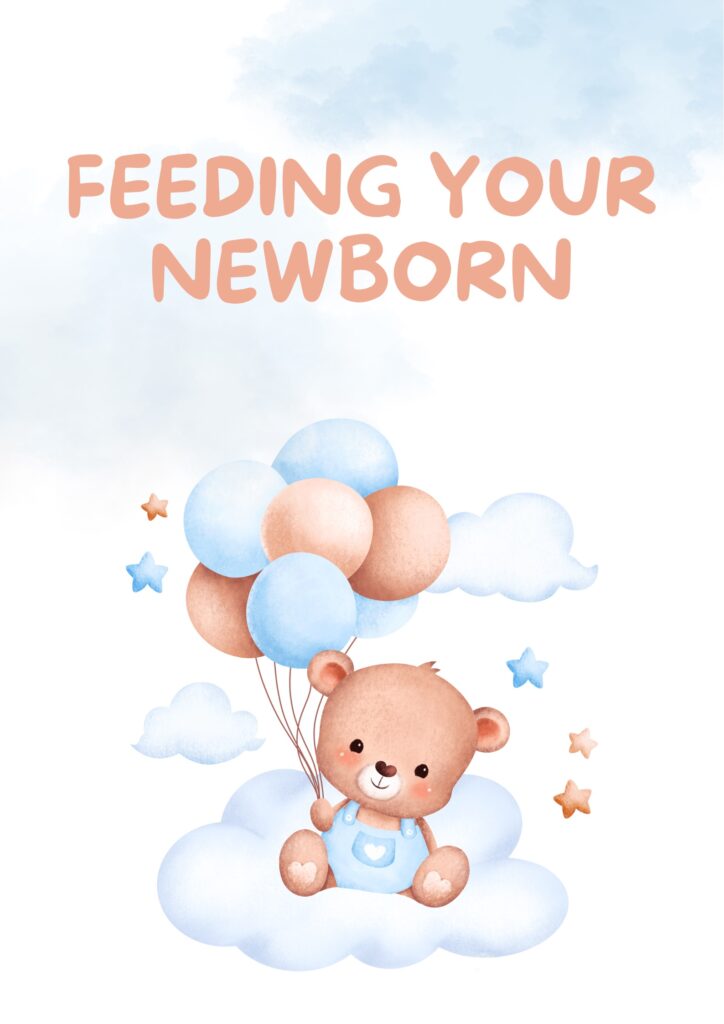
Ah, feeding time. It’s a big part of your new routine, and it’s about so much more than just nutrition. Whether you’re breastfeeding or formula feeding, these moments are precious opportunities for bonding with your baby.
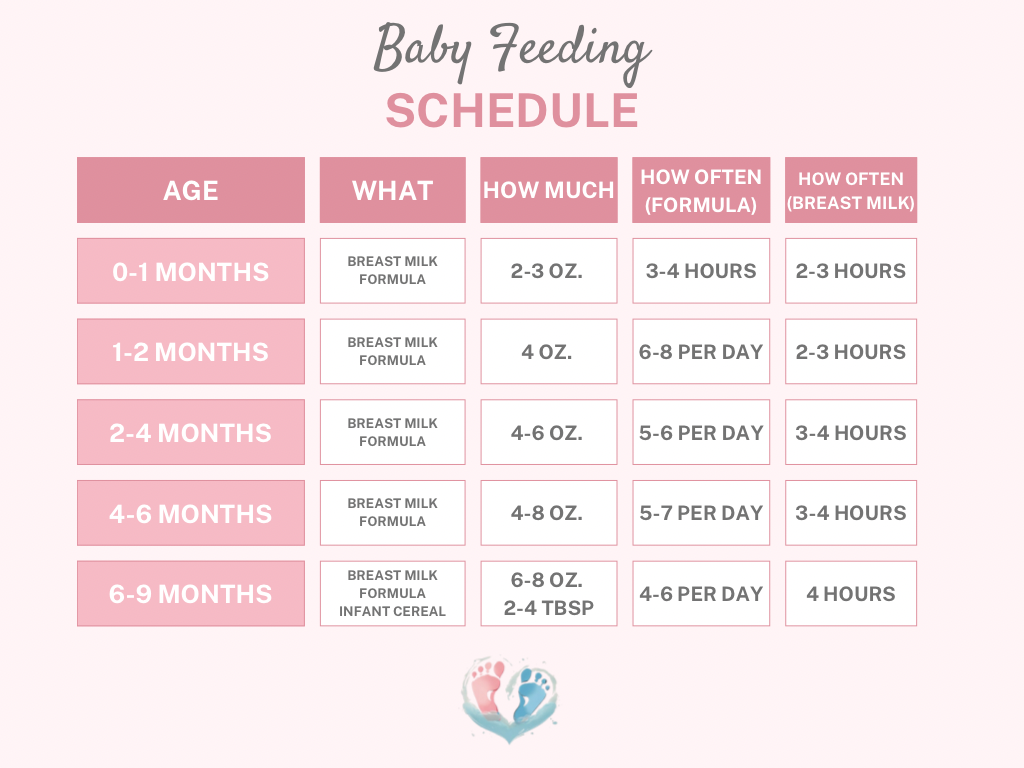
Breastfeeding Basics
If you’ve chosen to breastfeed, congratulations! It’s a beautiful way to nourish your baby, but it can also come with its challenges. Here are some tips to get you started:
- Find a comfortable position. The football hold worked wonders for me in those early days!
- Ensure a good latch. Your baby’s mouth should cover most of the areola, not just the nipple.
- Feed on demand. Newborns typically need to eat every 2-3 hours, but don’t watch the clock too closely.
- Stay hydrated and well-nourished yourself. Breastfeeding burns calories!
Remember, it’s okay if breastfeeding doesn’t come naturally at first. It took me and my daughter about two weeks to really get the hang of it. Don’t hesitate to reach out to a lactation consultant if you need help.

Formula Feeding Facts
If you’re formula feeding, you’ve got some different considerations:
- Select the Right Formula for Your Baby: Every baby’s tummy is unique, so it’s important to explore various formula options. Understanding the different brands can help you find the best fit for your little one. Here are our top recommendations:
- Similac 360 Total Care
- Kabrita Goat Milk-Based Infant Formula
- Enfamil NeuroPro Baby Formula
- Gerber Good Start Baby Formula
- Sterilize bottles and nipples, especially in the early weeks.
- Always follow the preparation instructions carefully.
- Hold your baby close during feedings to promote bonding.
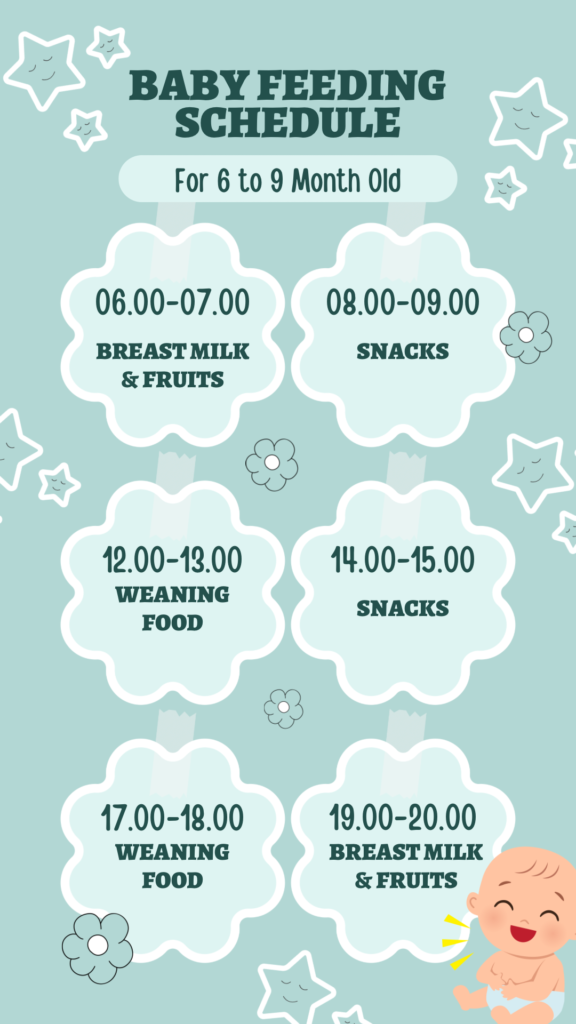
Recognizing Hunger Cues
Babies have their own ways of telling us they’re hungry. Some common signs include:
- Rooting (turning head and opening mouth)
- Putting hands to mouth
- Lip smacking
- Fussing or crying (a late sign of hunger)
Pro tip: Try to feed your baby before they start crying. It’s easier to feed a calm baby!

The Art of Burping
Ah, burping. It’s more of an art than a science, really. Here are a few techniques to try:
1. Over the shoulder: Hold baby against your chest, their chin on your shoulder, and pat their back.
2. Sitting on your lap: Support baby’s chest and head with one hand while patting their back with the other.
3. Lying across your lap: Place baby face down across your legs and gently rub or pat their back.
Remember, some babies burp easily, while others barely burp at all. Don’t stress if your little one doesn’t produce a big belch every time!
2. Sleep and Soothing Techniques: The Holy Grail of Parenting
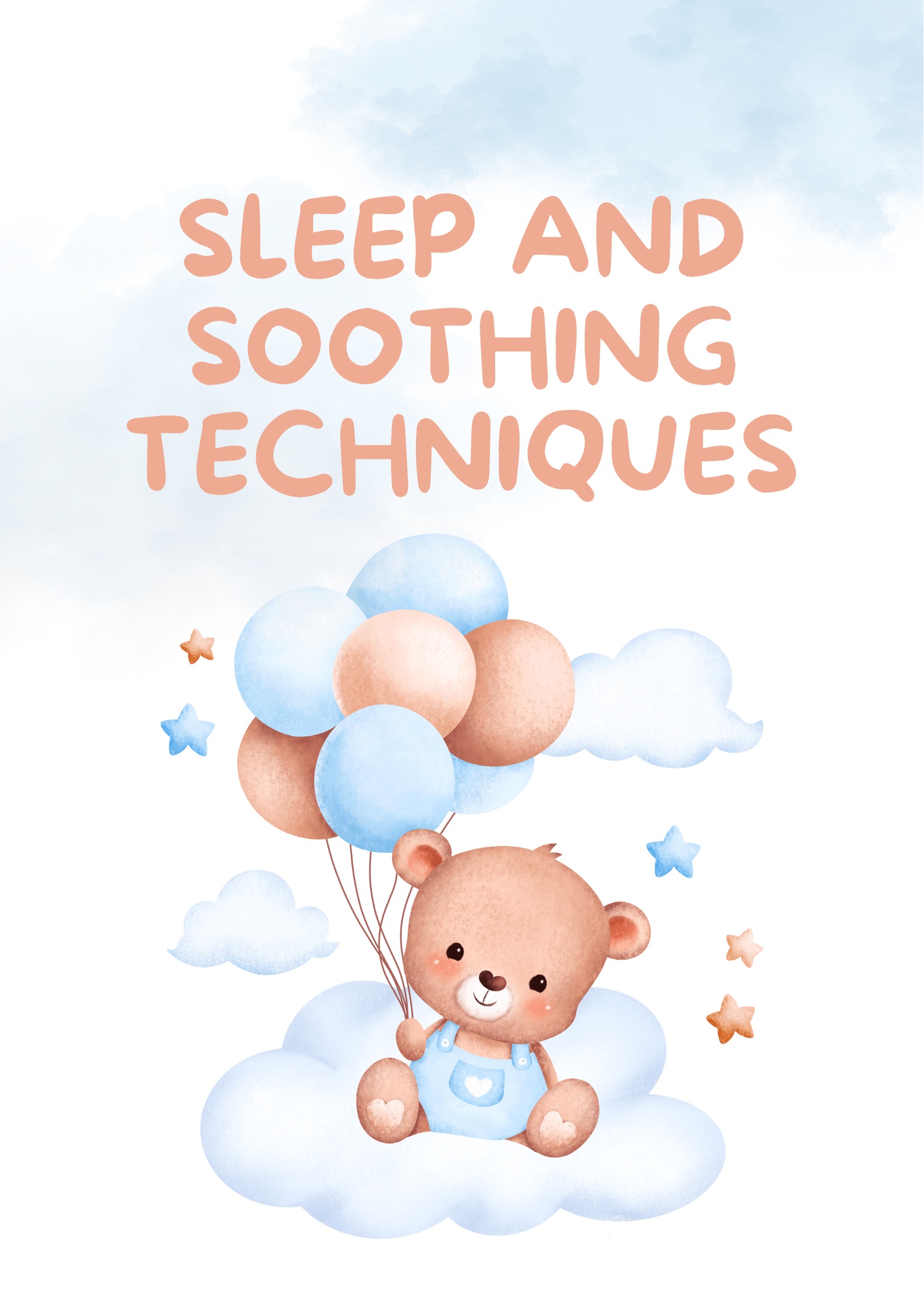
Sleep. Oh, glorious sleep. It’s about to become your new obsession. Let’s talk about how to help your baby (and you) get some much-needed rest.

Essential Safe Sleep Practices for Newborns: Guidelines for Peaceful Nights
First things first: safe sleep is crucial.
- Always place baby on their back to sleep.
- Use a firm sleep surface in a safety-approved crib.
- Keep soft objects and loose bedding out of the crib.
- Room-sharing (but not bed-sharing) for at least the first six months.

How Much Sleep Does a Newborn Need?
Newborns sleep a lot, but in short bursts. Expect your baby to sleep 14-17 hours a day in the first few months. But here’s the kicker: they’ll wake every 2-3 hours to eat. Welcome to your new normal!

Soothing Techniques
When it comes to calming a fussy baby, every little one is different. Here are some techniques to try:
1. Swaddling: It mimics the snug feeling of the womb. Just be sure not to swaddle too tightly!
2. Rocking or swaying: The gentle motion can be very calming.
3. White noise: A fan, white noise machine, or even a vacuum cleaner can work wonders. Our favorite noise machine is the Hatch Rest Baby.
4. Pacifiers: Some babies find them soothing, but wait until breastfeeding is well-established if you’re nursing. Our top rated is the MAM Night Pacifiers.
Fun Fact: Did you know that the sound “shh” mimics the noise a baby hears in the womb? It’s like a sound time machine back to their coziest days!
3. Diapering and Hygiene Tips: How to Keep Your Newborn Clean, Dry, and Comfortable

Ah, diaper duty. It’s not the most glamorous part of parenting, but it’s certainly an important one. Let’s dive in!

Diapering 101
- Change diapers frequently, about every 2-3 hours or as needed.
- For girls, wipe from front to back to prevent UTIs.
- For boys, point the penis down before closing the diaper to avoid leaks.
- Allow some diaper-free time each day to air out the skin.
Dealing with Diaper Rash
Diaper rash happens to the best of us. Here’s how to handle it:
1. Change diapers promptly when wet or soiled.
2. Clean the area gently with water and a soft cloth.
3. Apply a barrier cream with zinc oxide.
4. If the rash persists or looks severe, consult your pediatrician.
Umbilical Cord Care
Until the umbilical cord stump falls off (usually within 1-3 weeks):
- Keep the area clean and dry.
- Fold the diaper down below the stump.
- Clean around the base with a cotton swab dipped in water.
- Call your doctor if you notice redness, swelling, or a foul odor.
Bathing Your Baby
In the early weeks, sponge baths are the way to go. Once the umbilical cord stump falls off, you can graduate to tub baths. Here’s a quick bathing guide:
1. Gather all supplies before starting.
2. Use warm (not hot) water and mild, unscented soap.
3. Support baby’s head and neck at all times.
4. Wash from top to bottom, front to back.
5. Keep baths short, about 3-5 minutes.
Parent hack: Warm up a towel in the dryer before bath time. Your baby will thank you!
4. Monitoring Newborn Health and Development: Key Milestones and Growth Insights
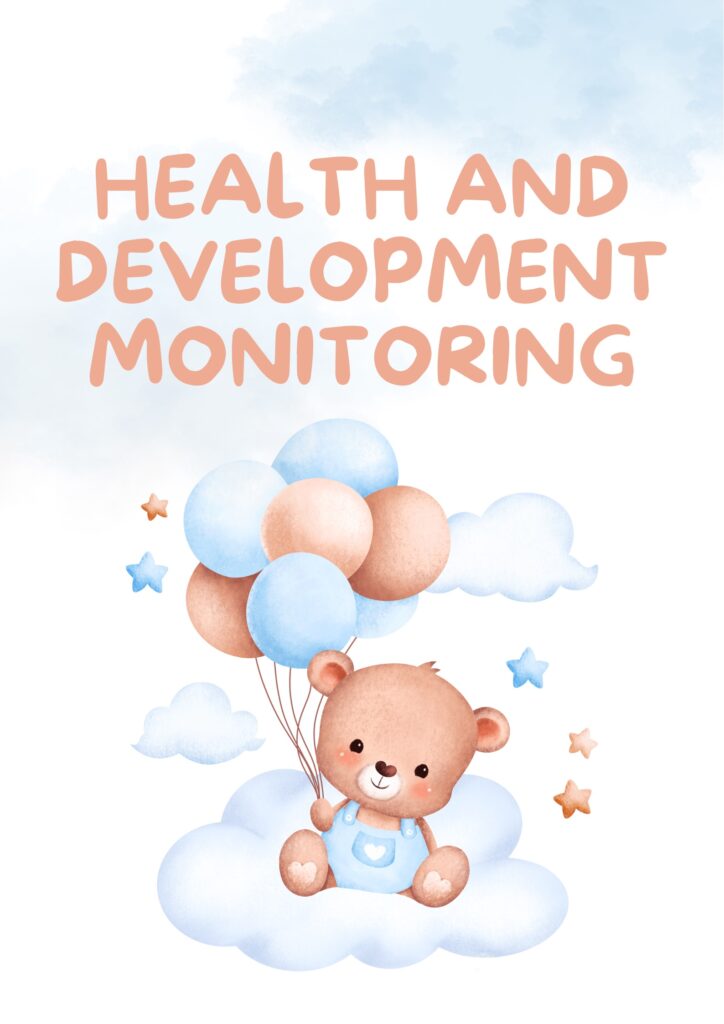
Watching your baby grow and develop is one of the most rewarding parts of parenting. Here’s what you need to know:
Newborn Health Checks
Your baby will have several check-ups in the first year. These typically occur at:
- 3-5 days old
- 1 month
- 2 months
- 4 months
- 6 months
- 9 months
- 12 months
During these visits, your pediatrician will check your baby’s growth, development, and overall health.
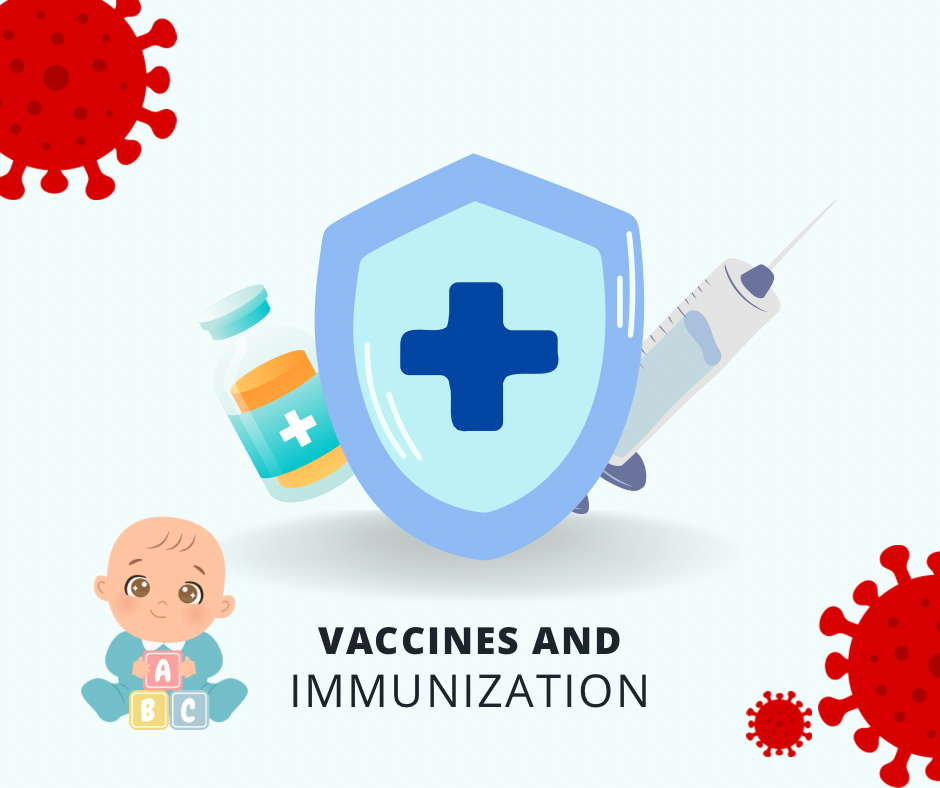
Immunizations
Vaccines are crucial for protecting your baby from serious diseases. Your pediatrician will provide a vaccination schedule, which typically starts at the 2-month visit.

Tracking Milestones
While every baby develops at their own pace, here are some milestones to look out for in the first few months:
- By 1 month: Lifting head briefly when on tummy
- By 2 months: Smiling at people
- By 3 months: Cooing and making gurgling sounds
- By 4 months: Reaching for toys
Remember, these are general guidelines. If you have concerns about your baby’s development, always consult your pediatrician.
Common Newborn Health Issues: Signs, Symptoms, and When to Seek Help

Some health issues to be aware of include:
Jaundice: Yellowing of the skin and whites of the eyes, commonly seen in the first week of life. This is caused by a buildup of bilirubin, a waste product from red blood cells. Mild jaundice is normal, but significant or persistent jaundice may require medical attention to prevent complications. Seek help if the yellowing appears in the first 24 hours, spreads to the arms and legs, or the baby seems lethargic or has poor feeding.
Colic: Excessive, inconsolable crying in an otherwise healthy baby, often occurring in the late afternoon or evening. Colic typically begins around 2-3 weeks of age and can last for several months. While distressing, colic is not harmful and usually resolves on its own. However, seek medical care if the crying is accompanied by fever, vomiting, diarrhea, or the baby is difficult to console.
Reflux: Spitting up or vomiting frequently after feedings, often due to an immature digestive system. Mild reflux is common and typically resolves on its own by 12-18 months. But significant or persistent reflux that interferes with feeding, causes discomfort, or leads to poor weight gain may require evaluation by a pediatrician.
Cradle cap: Scaly, crusty, yellow or white patches on the scalp, face, or ears, often appearing in the first few months. Cradle cap is harmless and usually resolves on its own, but persistent or severe cases may require a medicated shampoo or ointment prescribed by a pediatrician.
When in doubt, don’t hesitate to call your pediatrician. It’s better to be safe than sorry!
Newborn Care Challenges and Solutions: Practical Tips to Help You Thrive

Parenting a newborn isn’t always smooth sailing. Here are some common challenges and how to tackle them:
1. Sleep deprivation: Take turns with your partner for night feeds if possible. Nap when the baby naps (yes, the dishes can wait!).
2. Feeling overwhelmed: It’s okay to ask for help. Let friends and family pitch in with meals or household chores.
3. Breastfeeding difficulties: Seek help from a lactation consultant. Remember, fed is best, whether by breast or bottle.
4. Postpartum mood changes: Talk to your healthcare provider if you’re feeling persistently sad or anxious. Postpartum depression is common and treatable.
Remember when I mentioned my breastfeeding struggles? Well, I also dealt with some pretty intense baby blues. Talking to other moms and my doctor really helped. Don’t be afraid to reach out if you’re struggling!
Hannah’s Helpful Tip
Trust your instincts. You know your baby better than anyone. While it’s great to seek advice, remember that every baby is unique. What works for one might not work for another. And most importantly, enjoy this time. It goes by so fast!
Practical Newborn Care Tips and Key Takeaways for New Parents

1. Set up a changing station on each floor of your home.
2. Use a baby carrier for hands-free soothing.
3. Keep a ‘go bag‘ packed for quick outings.
4. Take photos and videos, but don’t forget to be present in the moment.
5. Establish a bedtime routine early on.
6. Remember to take care of yourself too – a happy parent makes for a happy baby!
7. Don’t compare your baby (or your parenting) to others.
8. Sing to your baby – they love your voice, even if you think you can’t carry a tune!
Celebrating Your Journey
Whew! We’ve covered a lot of ground, haven’t we? From feeding and sleep to health and hygiene, you’re now armed with the knowledge you need to take on this parenting journey.
Remember, every parent has been where you are now. It’s okay to feel overwhelmed sometimes. It’s okay to make mistakes. What matters most is the love and care you’re giving your little one.
As you navigate these early days, weeks, and months, remember to be kind to yourself. You’re learning and growing right alongside your baby. Trust your instincts, ask for help when you need it, and don’t forget to enjoy the journey.
Before we wrap up, I want to leave you with this thought: You are exactly the parent your baby needs. You’ve got this!
Next Steps: Empowering Your Parenting Journey
We’d love to hear from you! What newborn care tips have worked for you? Any fun stories or “aha” moments you’d like to share? Share them on our Facebook page and if you found this guide helpful, why not share it with other new parents in your life?
Remember, we’re all in this parenting adventure together. Here’s to healthy, happy babies and confident, well-rested parents!
xoxo
Bonus Content! Top baby formula’s on Amazon today
- GET MORE REWARDS POINTS: Scan the MySimilac QR code on select products to earn points toward a Reward
- GET MORE REWARDS POINTS: Scan the MySimilac QR code on select products to earn points toward a Reward
- 5-YEAR BENEFIT: MFGM components clinically shown to support cognitive, motor & communication development now through age 5 when fed through baby’s first year.
- INFANT FORMULA MODELED AFTER BREAST MILK: Bobbie formula is a complete nutrition recipe with industry leading levels of DHA and iron, choline, and vitamin D to support healthy growth and development.
- ALL-IN-ONE COMFORT FOR YOUR LITTLE ONE: Enfamil NeuroPro Gentlease is thoughtfully crafted to provide all-in-one comfort, designed to ease fussiness, crying, gas, and spit-up within just 24-hours, so you and your baby can enjoy precious moments of peace
- COMPLETE NUTRITION: This infant formula provides complete nutrition for baby’s first year; expert recommended DHA for brain support and immune supporting HMOs commonly found in breast milk; compare to the nutrition of Enfamil Neuropro Gentlease
- COMPARABLE TO U.S. PRO-TOTAL COMFORT: This formula was manufactured in Spain and is similar to the U.S. version of Pro-Total Comfort
- GET MORE REWARDS POINTS: Scan the MySimilac QR code on select products to earn points toward a Reward
- GENTLE ON TUMMIES: Mama Bear Gentle Infant Formula Powder is gentle on tiny, tender tummies, so it’s easier to digest. Helps reduce fussiness, gas and crying. Compare to the nutrition of Enfamil NEUROPRO Gentlease
- COMPLETE NUTRITION: Mama Bear Advantage Premium provides complete nutrition for baby’s first year; this enhanced formula has multi HMOs versus our single HMO formulation; compare to the nutrition of Similac Pro-Advance
Disclaimer
Shopping through our links helps fuel our never-ending coffee addiction. So, thank you in advance for keeping us caffeinated and awake for more articles!
















